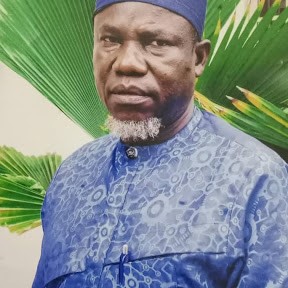Africa
Democracy, Not Monarchy: Why Nigerian Politicians Must Eschew Political Dynasties, by Isaac Asabor

In a democracy, power belongs to the people, not to a select few families. Yet, across Nigeria, a troubling trend of political dynasty-building is taking root. This phenomenon, where politicians systematically corner political positions for themselves, their family members, and cronies, runs counter to the spirit of democracy and fairness. Instead of fostering inclusion and diversity in leadership, it entrenches inequality, stifles meritocracy, and creates a system that serves a privileged few at the expense of the larger population.
Nigeria’s political landscape is increasingly marked by the presence of family names that dominate governance across multiple generations and tiers of government. From federal to state levels, influential families leverage their positions to ensure their relatives occupy key political offices. These practices are not just undemocratic; they border on the feudal, reminiscent of monarchies where power is hereditary rather than earned.
The implications of such dynasties are profound. They rob ordinary Nigerians of opportunities to contribute to governance, perpetuate mediocrity by sidelining merit-based appointments, and deepen public cynicism about politics as an avenue for national development.
Democracy thrives on principles of equity, inclusivity, and representation. The establishment of political dynasties undermines these principles by creating a closed system where power circulates within a privileged few. The result is a democracy in name only, an oligarchy in practice.
This trend not only disenfranchises Nigerians but also concentrates power in ways that are unhealthy for a diverse society. When family ties supersede competence, governance suffers. Decisions are often made to protect family interests rather than national interests, leading to policies that serve the few while the majority languishes in poverty and neglect.
While political dynasties are not new to Nigeria, their growing entrenchment in recent years is alarming. In the past, some of Nigeria’s political figures were content to pass the baton to capable hands outside their immediate circles. Today, many seek to keep power within their families, an approach that not only marginalizes the broader population but also creates a perception of governance as a private enterprise.
For instance, cases abound where governors have installed their siblings, children, or spouses as successors or pushed them into federal roles while ensuring loyalists dominate the state assembly. Such practices send a dangerous message that political offices are personal assets to be inherited, not public trusts to be earned through the democratic process.
The consequences of political dynasties on governance are dire. Firstly, they undermine meritocracy. When positions are awarded based on family connections rather than qualifications or competence, the quality of leadership diminishes. This trend perpetuates mediocrity and stalls progress, as individuals chosen for their surnames may lack the requisite skills or vision for the roles they occupy.
Secondly, political dynasties entrench corruption. When families dominate the corridors of power, accountability becomes elusive. Family members and loyalists protect each other, creating an environment where impunity thrives. Resources meant for public welfare are often diverted to sustain the dynasty, leaving citizens to bear the brunt of poor governance.
Lastly, political dynasties deepen societal divisions. They breed resentment among marginalized groups who feel excluded from governance, fostering a sense of alienation that can lead to social unrest. In a country as diverse as Nigeria, inclusivity in leadership is not just desirable, it is essential for national unity and stability.
If Nigeria is to fulfill its democratic potential, a paradigm shift is urgently needed. Politicians must recognize that public office is a trust, not a birthright. They must eschew the temptation to build dynasties and instead focus on creating opportunities for all Nigerians to participate in governance.
Political parties have a critical role to play in this regard. They must prioritize merit over loyalty and family connections in candidate selection processes. Internal party democracy should be strengthened to ensure that the best candidates emerge, regardless of their surnames or affiliations.
Civil society organizations and the media also have a responsibility to hold politicians accountable. By shining a light on instances of nepotism and dynastic practices, they can create public pressure for change. Nigerians, too, must demand more from their leaders, rejecting candidates who prioritize family interests over national development.
The fight against political dynasties is not just about preserving the sanctity of democracy; it is about ensuring that governance serves the interests of all Nigerians, not a privileged few. Politicians must rise above parochial interests and commit to building a system that rewards competence, fosters inclusivity, and promotes national unity.
Nigeria’s diversity is its strength. By embracing this diversity in leadership, the country can harness the talents and perspectives of all its citizens, paving the way for a more equitable and prosperous future. Political dynasties, on the other hand, represent a step backward, an affront to the principles of democracy and a betrayal of the trust placed in leaders by the electorate.
Democracy is a collective endeavor, not a family business. Nigerian politicians must resist the allure of dynasty-building and embrace the true essence of democracy: a system where power is earned through service and competence, not inherited through family ties. It is only by dismantling these dynasties that Nigeria can move closer to the ideals of equity, justice, and progress that democracy promises.
Let us remind ourselves that leadership is a privilege, not a birthright. To build a better Nigeria, we must build a democracy that works for all, not just for a few.

























